UP Board Class 12 Physics Question Paper 2025 PDF (Code 346 JW) is available for download here. The Mathematics exam was conducted on March 6, 2025 in the Morning Shift from 2:00 PM to 5:15 PM. The total marks for the theory paper are 100. Students reported the paper to be easy to moderate.
UP Board Class 12 Physics Question Paper 2025 (Code 346 JW) with Solutions
| UP Board Class Physics Question Paper with Answer Key | Check Solutions |

UP Board Class 12 Physics Questions with Solutions
A charge \( q \) enters with speed \( v \) in the direction of magnetic field \( B \). The force on the charge in magnetic field will be:
Electrostatic force between two point charges placed in a medium of dielectric constant \( k \) is \( F_1 \). On changing the medium, electrostatic force between the charges becomes \( F_2 \). Dielectric constant of the medium will be:
A concave lens of focal length -18 cm is placed in contact with a convex lens of focal length +12 cm. The focal length of the combination will be:
Resistance of an ideal p-n junction diode in reverse bias is:
Resistivity of a conducting wire depends on:
On connecting a cell of e.m.f. 0.5 volt with an external resistance of 1.9 \(\Omega\), the current flowing is 0.75 A. The internal resistance of the cell is:
Write down Einstein's equation for the photoelectric effect.
Write de-Broglie formula for the wavelength of matter waves.
Equation of electric field of a plane electromagnetic wave is given as:
\[ E_z = 60 \sin(500x + 1.5 \times 10^{11} t) \, V/m. \]
Write the equation for the magnetic field of the wave.
In an alternating circuit, the reading of the voltmeter is 220 V. Write the peak value of the voltage.
Do two equipotential surfaces intersect each other? Answer with reason.
On which principle does a nuclear reactor work?
What is the meaning of electrical capacity of a conductor? Find the unit of the electrical capacity of the conductor.
Write down the equation for Lorentz force. An electron passes undeviated from a place where an electric field \(5 \times 10^4~V/m\) and magnetic field of \(5 \times 10^{-2}~weber/m^2\) are applied. Calculate the velocity of the electron.
Explain the meaning of binding energy of a nucleus. Write the dependency of binding energy per nucleon on the mass number of the nucleus.
Give pictorial representation of polarized and unpolarised light. Polarizing angle for a transparent medium is 60°. Find the value of angle of refraction and refractive index of the medium.
Name the waves of longest wavelength and highest frequency in the given electromagnetic waves — microwaves, X-rays, radio waves, and \(\gamma\)-rays. What is meant by displacement current?
What is the meaning of stationary orbit of atom? Deriving formula for the energy of the electron in the stationary orbit of the hydrogen atom, mention its relation with the radius of the orbit of electron.
With the help of the given circuit, find out the total resistance of the circuit and the current flowing through the cell.
What is an astronomical telescope? Draw ray diagram for an astronomical telescope when final image is formed at infinity.
State Gauss's law in electrostatics. On the basis of it, obtain the formula for the electric field produced due to a plane charged plate.
Explain the working method of p-n junction diode in reverse bias with the help of a circuit diagram.
In A.C. circuits, what is the difference between impedance and resistance? Write the formula for power factor in L-C-R circuit.
Which nature of light is supported by Young’s double slit experiment? The light used in Young’s double slit experiment contains two wavelengths, 6000 \AA\ and 5000 \AA. Separation between the slits is \(10^{-3}\) m and the screen is at a distance of 1 m from the slits. Find minimum distance from the central maxima where bright fringes for both the wavelengths are coincident.
What is the photoelectric effect? Which nature of light is shown by it? Threshold frequency of a metal is \(2.3 \times 10^{14}\) Hz. If the frequency of incident light is \(8.2 \times 10^{14}\) Hz, what will be the stopping potential? Calculate work function of the metal also.
Derive the formula for the capacitance of a parallel plate capacitor partially filled with a dielectric medium between the plates.
With the help of given circuit, find out:
(i) Equivalent capacity of the combination
(ii) Charge on capacitor \(c_1\)
(iii) Total stored energy of the combination.
What is meant by magnetic effect of electric current? Find the expression for the force acting between two parallel current-carrying conducting wires. On this basis, define the unit of electric current 'ampere'.
State Huygens' principle of secondary wavelets. With the help of this principle, explain the laws of reflection of light.
Mention the most important conclusion of Rutherford's alpha-particle scattering experiment. Define isotopic, isobaric, and isotonic nuclei. Find the energy equivalent to one atomic mass unit in joules and MeV (1 u = 1.6605 × \(10^{-27}\) kg).
Explain the difference between self-inductance and mutual inductance. Define the coefficient of self-inductance and coefficient of mutual inductance. A plane coil of area 100 cm\(^2\) is rotating in a magnetic field of 2 weber/m\(^2\) with angular velocity 20 rad/s. What will be the maximum induced electromotive force in the coil?
State Kirchhoff's law related to electrical circuits. In the given metre bridge, balance point is obtained at D. On connecting a resistance of 12 ohm parallel to S, balance point shifts to D'. Find the values of resistances R and S.

On the basis of energy band diagram in solids, explain the difference between conductor, semiconductor, and insulator. What is the need of doping in pure semiconductors? Write the value of current in the ideal diodes \( D_1 \) and \( D_2 \) in the given circuit.
Write down the formula for refraction of light from a spherical surface and with the help of this, derive the relation \( \frac{1}{f} = (n - 1) \left( \frac{1}{R_1} - \frac{1}{R_2} \right) \) for a thin lens. Also show that, the focal length for concave lens will be negative.
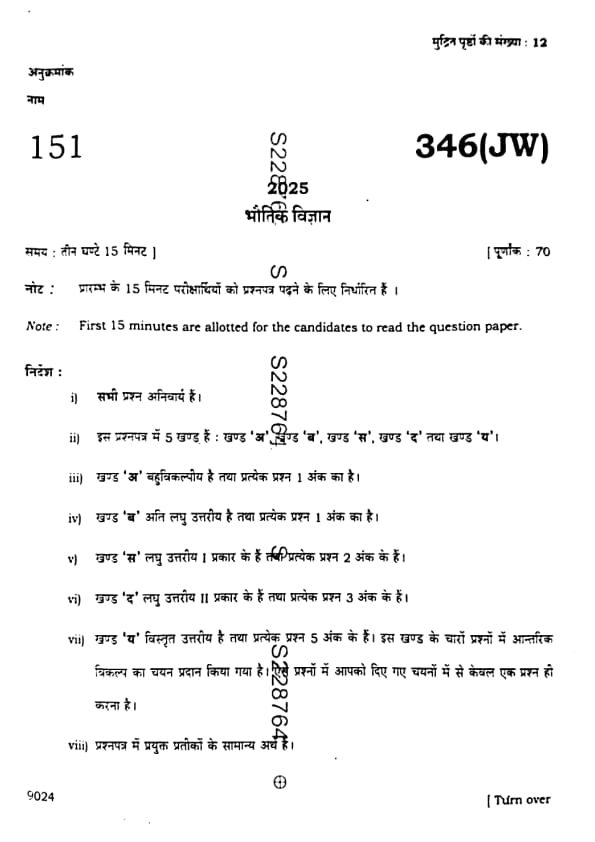
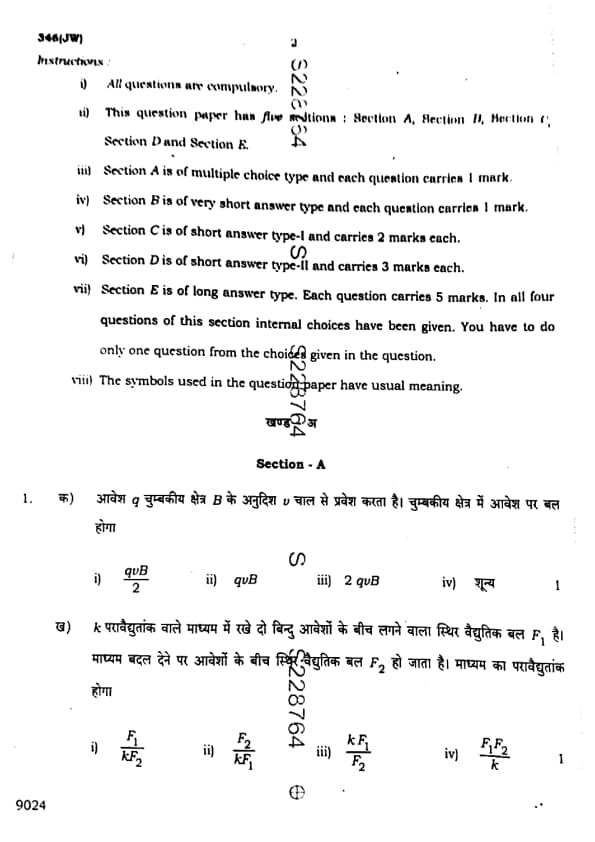
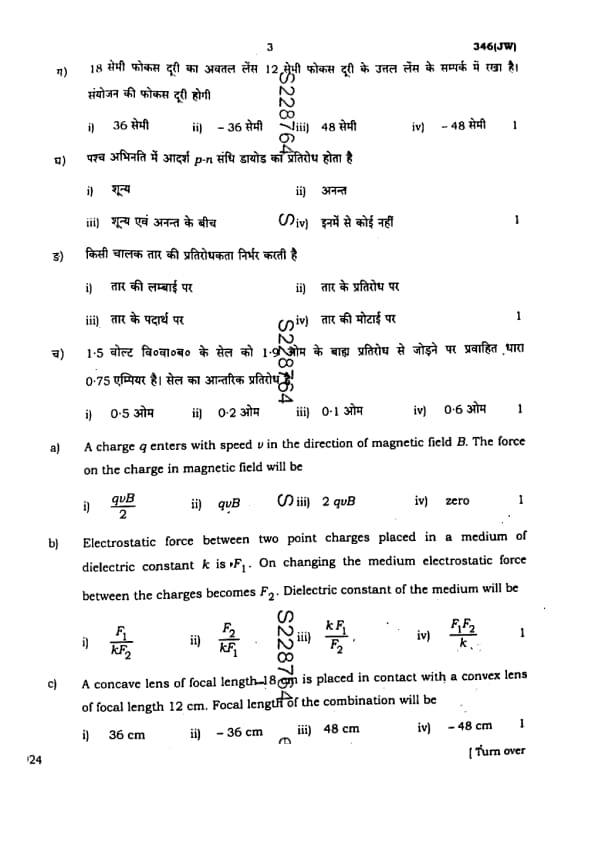
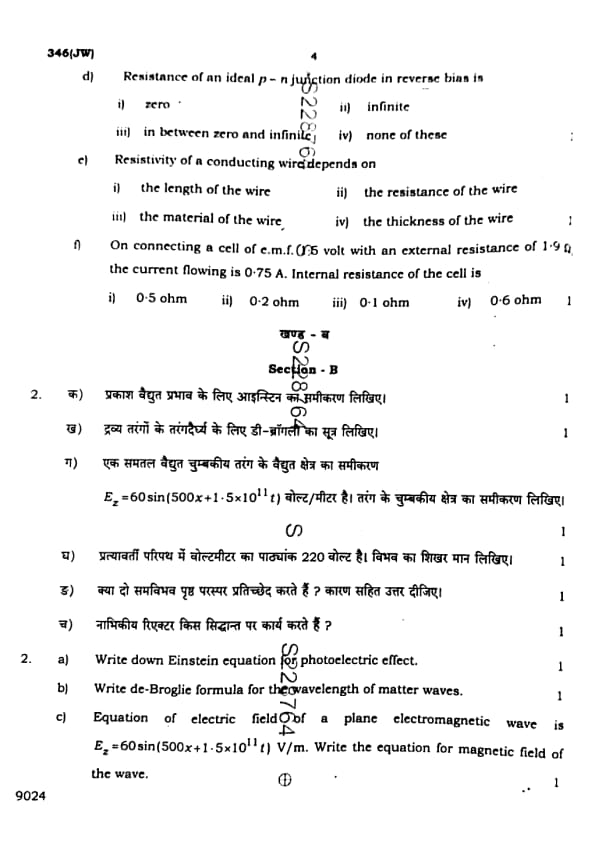
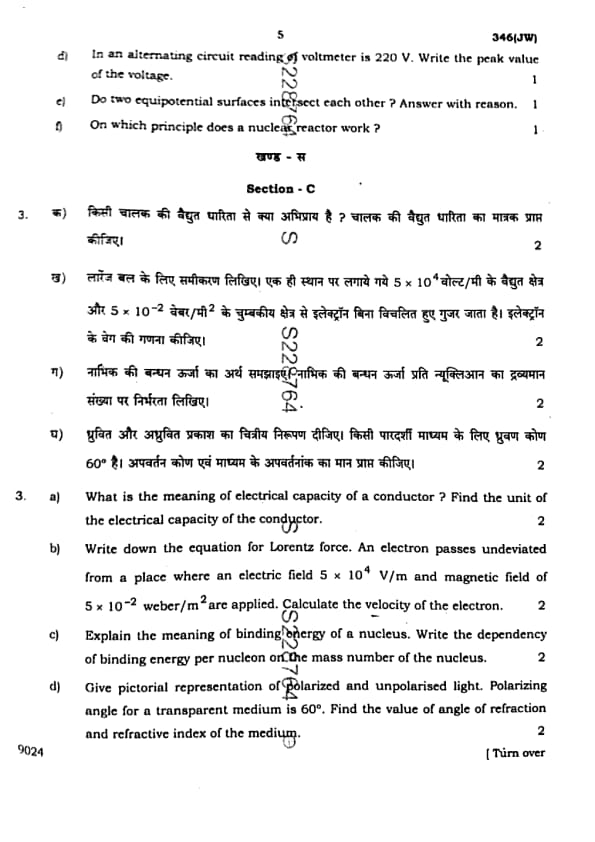
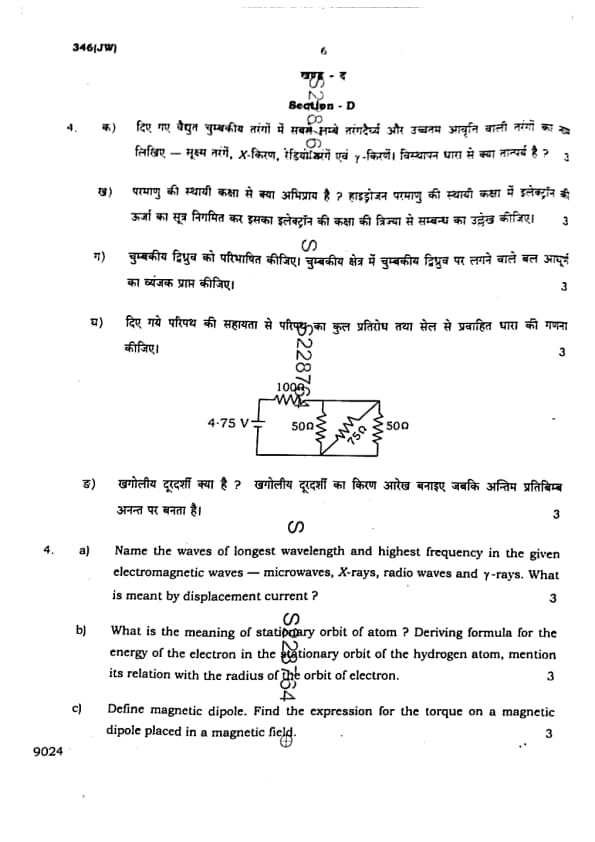
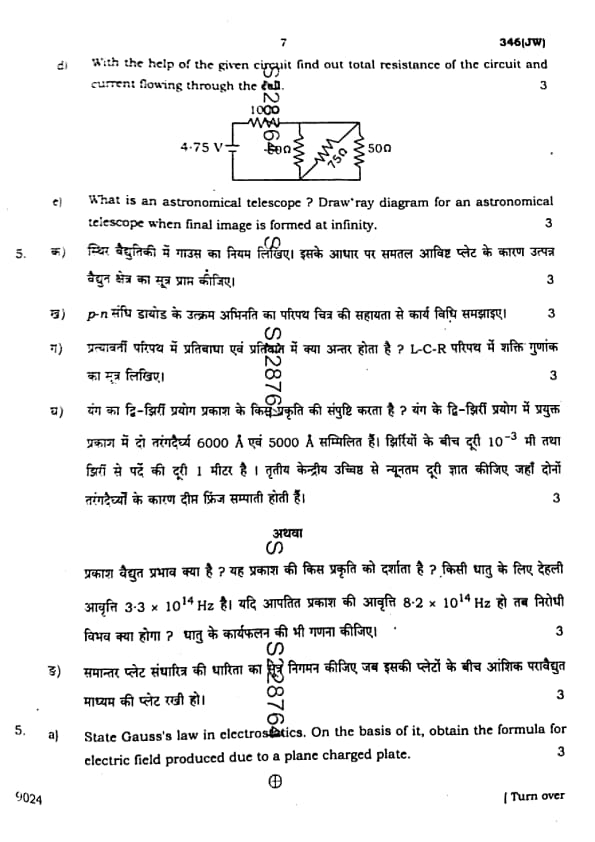
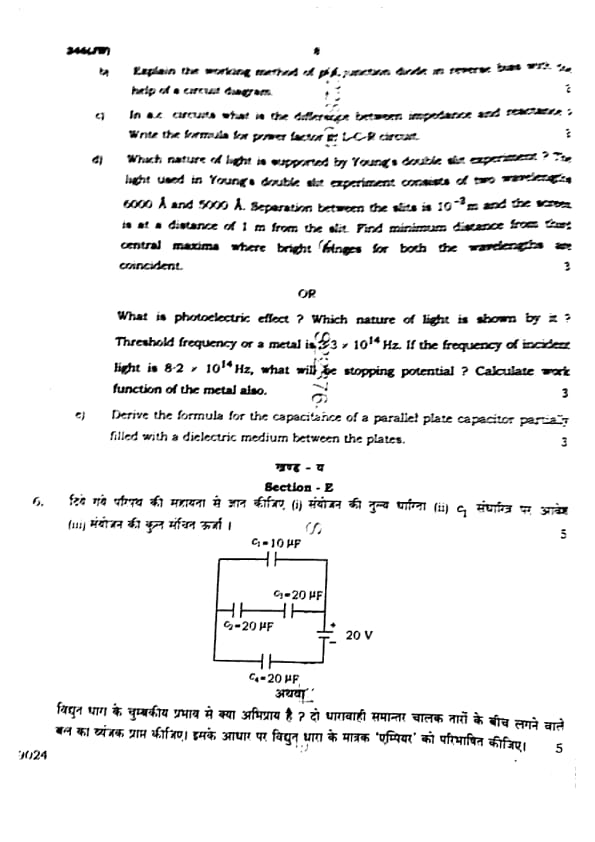
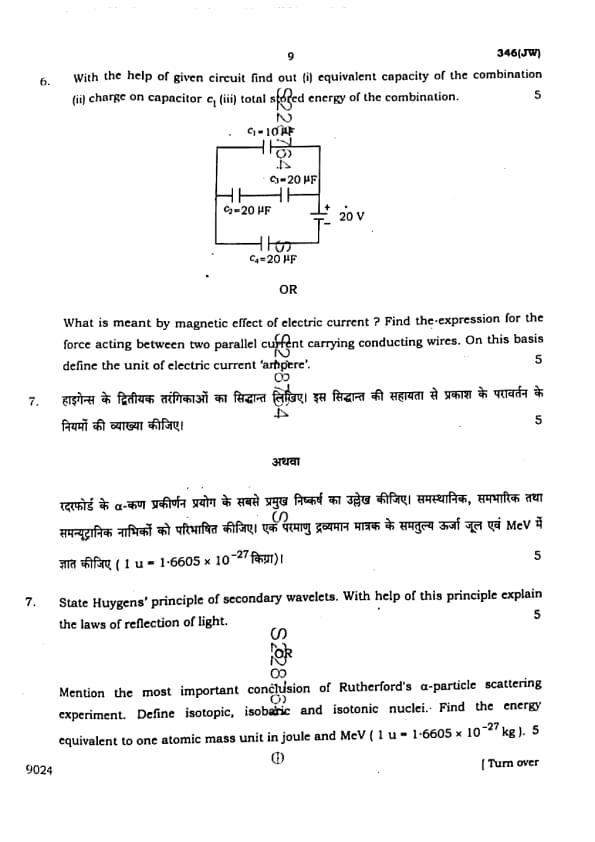
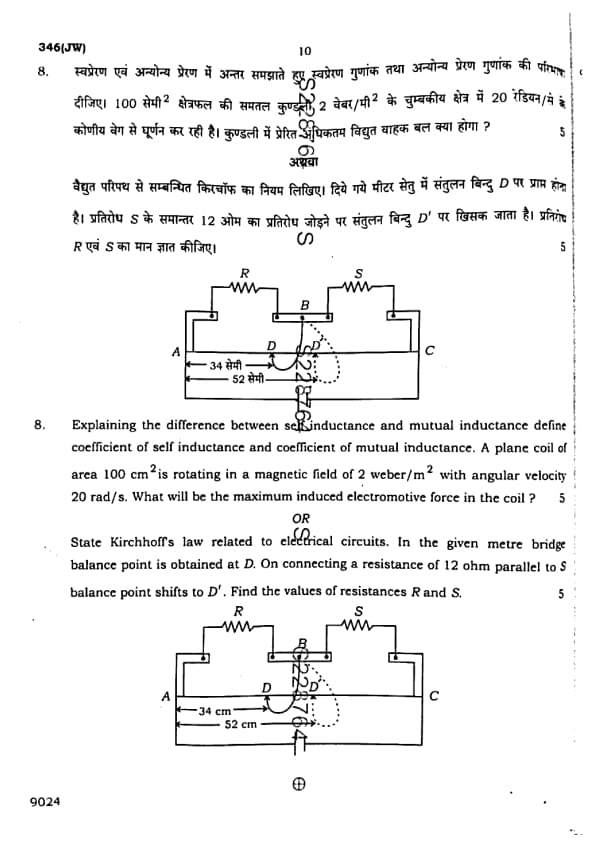
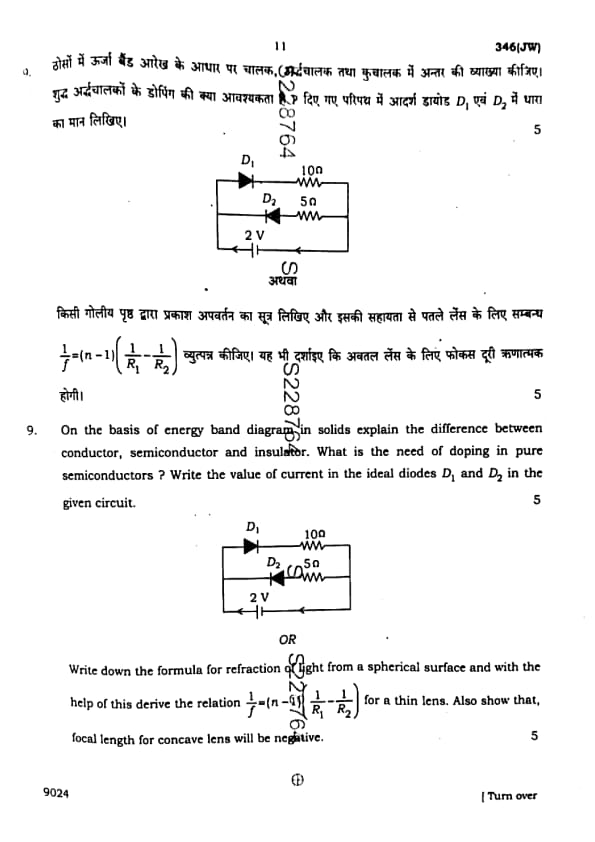
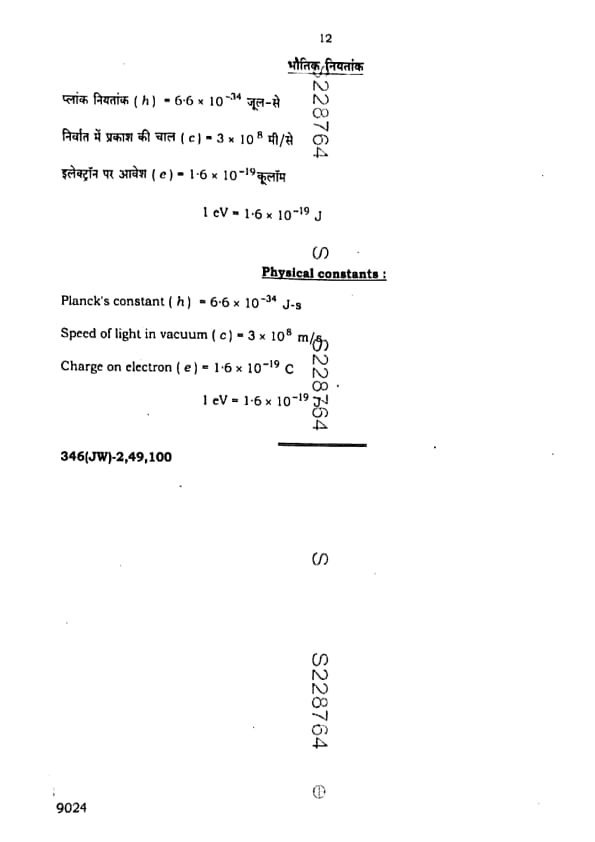



Comments